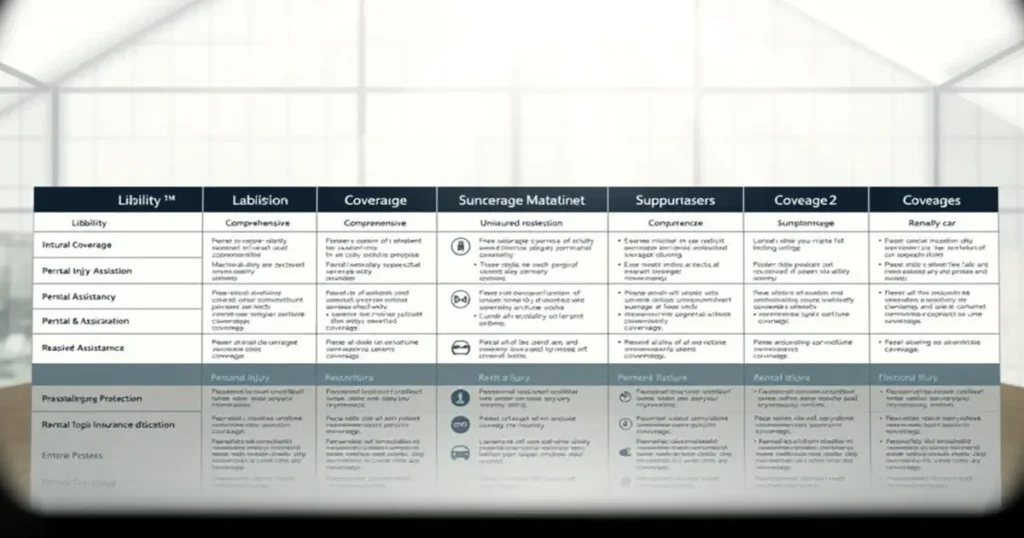Nearly 1 in 5 car accident victims underestimate the severity of their injuries, leading to inadequate insurance claims. When dealing with an insurance company, it’s easy to get overwhelmed, especially if they deny or undervalue your legitimate claim.
Our experienced team specializes in helping clients navigate the complex claims process to maximize their compensation. We understand that insurance companies often prioritize profits over fair payouts, using various tactics to minimize settlements or deny claims altogether.
Table of Contents
Understanding Auto Insurance Claims and Disputes
The process of filing an auto insurance claim is frequently marred by challenges, including disputes over the value of the claim or the liability of the parties involved. Insurance companies are for-profit businesses that may manipulate the facts of your claim or search for loopholes in your contract to avoid payment. Our attorneys have handled claims on behalf of policyholders who were told that they were not entitled to compensation for injuries or property damage because their losses were not as substantial as reported.
Insurance adjusters often contact claimants immediately after an accident, seeking statements that could later be used to reduce the claim’s value. This is just one of the many tactics employed by insurance companies to minimize payouts or avoid responsibility altogether.
Common Challenges with Insurance Companies
Common challenges include delayed claim processing, requests for unnecessary documentation, and pressure to accept quick but inadequate settlements. Insurance companies frequently undervalue claims by disputing the severity of injuries, questioning medical treatments, or challenging the necessity of vehicle repairs. Understanding these tactics is crucial to countering them effectively and pursuing the full compensation you deserve.
- Delayed claim processing can significantly prolong the time it takes to receive compensation.
- Requests for unnecessary documentation can be a tactic to slow down or complicate the claims process.
- Pressure to accept quick settlements often results in inadequate compensation for claimants.
Why Claims Get Denied or Undervalued
Claims are often denied based on policy exclusions, alleged coverage lapses, or disputes about who was at fault in the accident. Insurance companies may argue that your injuries existed before the accident or that you’re exaggerating your symptoms. Bad faith practices, including unreasonable delays, failure to investigate claims properly, or misrepresenting policy provisions, can also impact the outcome of your claim.
“Insurance companies have a duty to act in good faith when handling claims. When they fail to do so, policyholders have the right to seek legal recourse.”
By understanding why claims get denied or undervalued, policyholders can better navigate the complex landscape of auto insurance claims and disputes.
When to Hire an Auto Insurance Attorney

Navigating the complex process of insurance claims can be made easier with the guidance of an auto insurance attorney. Seeking help from an experienced auto accident attorney is always advisable following a car accident, especially if you are not at fault for the collision.
Signs Your Claim Needs Legal Representation
Recognizing when to hire an auto insurance attorney can make the difference between receiving fair compensation and being left with significant financial burdens. You should consider legal representation immediately if you’ve suffered serious injuries requiring extensive medical treatment or resulting in permanent disability.
When an insurance company denies your claim, offers an unreasonably low settlement, or delays processing without explanation, these are clear signs you need an attorney. If liability is disputed or multiple parties are involved in the accident, the complexity of your case increases substantially, warranting legal assistance.
Time Limitations for Filing Claims
Most states have strict statutes of limitations for filing auto insurance claims and lawsuits, typically ranging from one to three years depending on the jurisdiction. Missing these critical deadlines can permanently bar you from recovering compensation, making timely legal consultation essential.
Insurance companies are well aware of these time limitations and may use delay tactics to run out the clock on your claim. Our attorneys can help ensure all necessary documentation is filed properly and within the required timeframes to protect your right to compensation.
How an Auto Insurance Attorney Can Maximize Your Claim

An auto insurance attorney is crucial in ensuring that you receive the full compensation you deserve for your claim. Without an expert auto injury attorney, you may be coerced into agreeing to a settlement offer that is less than what you’re entitled to.
Negotiating with Insurance Companies
Our experienced auto insurance attorneys are skilled negotiators who understand the tactics used by insurance companies. We know that insurance companies typically offer higher settlements when claimants are represented by attorneys. Our negotiation strategies are built on years of experience dealing with insurance companies and understanding their limitations.
By having an attorney handle communications with the insurance company, you are protected from making statements that could potentially harm your claim. Our attorneys conduct thorough investigations, gathering crucial evidence to build a strong case.
Building a Strong Case for Maximum Compensation
To maximize your compensation, we accurately calculate the full value of your claim, including current and future medical expenses, lost wages, and pain and suffering. Our attorneys prepare every case as if it will go to trial, which strengthens our negotiating position and demonstrates our commitment to maximizing your compensation.
- An experienced auto insurance attorney brings valuable expertise to your claim, significantly increasing the potential compensation you can receive.
- We gather crucial evidence, including police reports, witness statements, medical records, and expert testimonies to strengthen your case.
- Insurance companies are more likely to offer a fair settlement when dealing with an attorney, knowing that lowball offers will be recognized and rejected.
Types of Auto Accident Claims We Handle
Auto accident claims can be broadly categorized into two main types, which we will explore in detail. Understanding these categories is crucial for maximizing your insurance claim.
Personal Injury Claims
Personal injury claims are the most common type of claim filed after an auto accident. These claims seek compensation for injuries sustained during the car collision, including medical bills, lost wages, ongoing medical care, and medical negligence. Our legal team handles a wide range of personal injury cases, from soft tissue damage and whiplash to more severe injuries like traumatic brain injuries and spinal cord damage.
We pursue compensation for all aspects of personal injury, ensuring that our clients receive fair coverage for their medical expenses, rehabilitation costs, lost wages, diminished earning capacity, and pain and suffering.
Property Damage Claims
Property damage claims are equally important, as they provide coverage for any damage to property resulting from the car accident. This can include vehicle repairs, vehicle replacements, car rental costs, and the replacement of valuable items damaged in the collision. Our team ensures fair valuation of your vehicle, challenges lowball repair estimates, and secures compensation for diminished value.
To illustrate the types of claims and their characteristics, consider the following table:
| Claim Type | Coverage | Examples |
|---|---|---|
| Personal Injury | Medical expenses, lost wages, pain and suffering | Medical bills, rehabilitation costs, compensation for lost income |
| Property Damage | Vehicle repairs, replacements, rental costs | Car repair estimates, total loss vehicle replacement, rental car fees |

Our experienced legal team is skilled at managing cases that involve multiple types of claims simultaneously, ensuring that no aspect of your compensation is overlooked. Whether you’re dealing with personal injury, property damage, or both, we’re here to guide you through the process and maximize your insurance claim.
Understanding Insurance Coverage Types
Understanding the various types of insurance coverage available is crucial for navigating the complex process of filing a claim. Automobile insurance policies can include multiple types of coverage, each serving a distinct purpose.
Liability Coverage
Liability coverage is a fundamental component of most auto insurance policies, covering bodily injury and property damage you cause to others in an accident where you’re at fault. This includes bodily injury liability, which covers medical expenses, lost wages, and pain and suffering of other parties, and property damage liability, which covers repairs to others’ vehicles or property.
Collision and Comprehensive Coverage
Collision coverage pays for damage to your own vehicle regardless of who is at fault, making it essential for protecting your investment in your vehicle. On the other hand, comprehensive coverage extends protection beyond accidents to include damage from theft, vandalism, natural disasters, falling objects, and fire. For instance, if your car is damaged in a flood or hit by a falling tree branch, comprehensive coverage would cover the repairs.

Uninsured/Underinsured Motorist Coverage
Uninsured/underinsured motorist coverage is critically important, protecting you when the at-fault driver either has no insurance or insufficient coverage to pay for your damages. This coverage ensures that you’re not left with significant out-of-pocket expenses due to someone else’s negligence or lack of adequate insurance.
Bad Faith Insurance Practices
Insurance companies are legally bound to act in good faith, but instances of bad faith practices are alarmingly common. When an insurance company unreasonably denies, delays, or underpays a legitimate claim, it engages in bad faith, leaving policyholders to face significant financial challenges.
Recognizing Bad Faith Actions
Bad faith actions by insurance companies can take many forms. Common signs include failing to conduct thorough investigations, misrepresenting policy provisions, and making unreasonable demands for proof. Additionally, insurance companies may fail to approve or deny claims within a reasonable timeframe or refuse to provide clear explanations for claim denials. Recognizing these actions is crucial for policyholders to understand their rights and seek appropriate legal remedies.
- Failing to conduct proper investigations into claims
- Misrepresenting the terms of the insurance policy
- Making unreasonable demands for proof or documentation
Legal Remedies for Bad Faith Claims
If you believe your insurance company has acted in bad faith, there are legal remedies available. Policyholders can file a complaint with their state’s insurance commissioner, pursue breach of contract claims, or file a specific bad faith lawsuit. Our attorneys are experienced in handling such cases and can help document patterns of bad faith behavior, building strong cases against insurance companies that engage in such practices.
Successful bad faith claims can result in additional compensation beyond the original claim amount, including punitive damages in some cases. By taking action against companies that act in bad faith, policyholders not only secure compensation for themselves but also help deter similar behavior towards others in the future.
Essential Documentation for Maximizing Your Claim
Effective documentation is essential for substantiating your insurance claim and ensuring maximum compensation. When you’re involved in an auto accident, the process of gathering and organizing documentation can be overwhelming, but it’s a critical step in building a strong case.
Medical Records and Treatment Documentation
Medical records are perhaps the most critical documentation, including emergency room reports, physician notes, treatment plans, medication prescriptions, and rehabilitation records. It’s essential to follow all medical advice and attend all appointments, as gaps in treatment can be used by insurance companies to argue that your injuries aren’t serious or are unrelated to the accident. Consistent medical documentation helps establish the severity and legitimacy of your injuries.
Loss and Expense Records
Comprehensive loss records should document all income lost due to the accident, including missed workdays, reduced hours, lost business opportunities, and diminished earning capacity. Keep track of every day you missed work and obtain a signed letter from your physician confirming that your absence was directly related to the auto accident. Additionally, record any activities you can no longer participate in due to injuries, and any expenses incurred as a result, such as hiring help for tasks you can no longer perform.
- Document all out-of-pocket expenses related to the accident, including medical bills and mileage for doctor’s appointments.
- Keep a detailed account of any property damage or replacement costs.
- Record any other losses, such as the cost of hotel stays if you had to travel for medical treatment.
Accident Reports and Witness Statements
Police reports provide an official account of the accident and are highly valued by insurance companies and courts when determining liability. Witness statements can offer crucial third-party perspectives on how the accident occurred, often helping to establish fault when liability is disputed. Gathering this information promptly is vital, as memories can fade over time, and evidence may be lost.
Our attorneys can help you organize this documentation effectively and identify any gaps that need to be addressed to strengthen your case. By maintaining thorough and accurate records, you can significantly enhance your chances of maximizing your insurance claim.
Our Approach to Auto Insurance Claims

We pride ourselves on our methodical and comprehensive approach to handling auto insurance claims, tailored to each client’s unique needs. Our attorneys have extensive experience handling insurance dispute cases and are well-equipped to handle the tactics used by insurance companies to avoid honoring valid claims.
Our process begins with a thorough case evaluation, where we review all available evidence, assess policy coverage, determine liability, and calculate the full value of your damages. This foundational step is crucial in building a strong case.
Case Evaluation Process
During the case evaluation, our attorneys conduct detailed interviews with clients to understand how the accident and resulting injuries have impacted their lives, careers, and families. We also consult with medical experts, accident reconstructionists, and financial analysts when necessary to build the strongest possible case foundation.
Litigation Strategy and Settlement Negotiations
Our litigation strategy is developed based on decades of experience and a deep understanding of insurance company defense tactics. We prepare every case as if it will go to trial, even while pursuing settlement negotiations, which strengthens our position and demonstrates our commitment to maximizing your recovery. Our settlement negotiation approach is firm but strategic, leveraging our case preparation and willingness to litigate to secure the best possible offers from insurance companies.
Throughout the process, we maintain transparent communication with our clients, providing regular updates and ensuring they understand all options before making decisions about settlement offers. Our track record of successful outcomes for clients in similar situations provides valuable insights that inform our approach to your specific case.
Contact Our Experienced Auto Insurance Attorneys Today
Don’t navigate the complex insurance claims process alone; our dedicated attorneys are ready to help. We offer a free, no-obligation consultation to evaluate your case and explain how our legal team can assist with your specific situation.
During your consultation, we’ll review the details of your accident, assess your policy coverage, and provide an honest assessment of your claim’s potential value. Our experienced attorneys work on a contingency fee basis, meaning you pay nothing unless we successfully recover compensation for you.
With a proven track record of challenging insurance companies and securing favorable settlements and verdicts for our clients, our firm has the resources, experience, and determination to take on even the largest insurance companies. Contact us today by phone, email, or through our website to schedule your free consultation and take the first step toward maximizing your auto insurance claim.